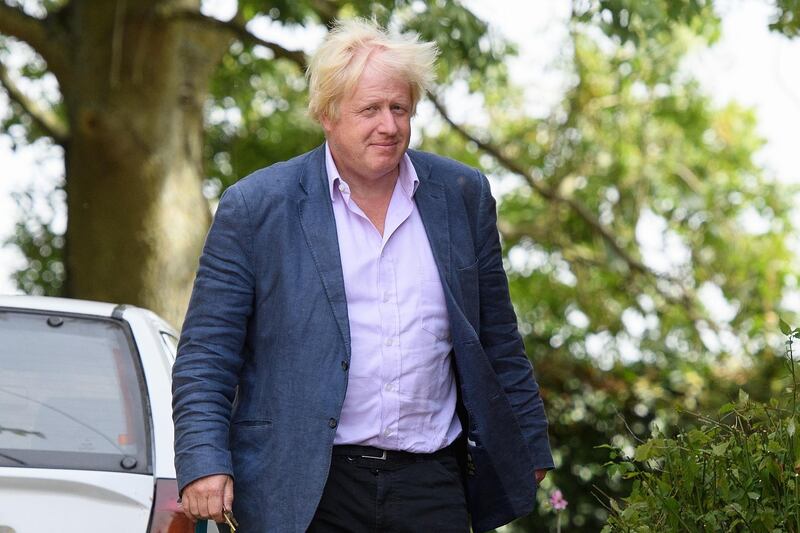Rebel ruling party MPs including Boris Johnson and David Davis could soon have their seats axed as Britain prepares to vote on redrawing parliamentary constituencies, despite criticism that it will stir further divisions as Brexit negotiations are under way.
Seats are slated to be cut from 650 to 600 as part of the border revision, which takes place periodically in order to account for population shifts.
The changes would benefit the ruling Conservatives overall. Analysis of the final proposals show that the Conservatives would have won a 16-seat majority at the last general election under the redrawn boundaries – instead of falling short by seven seats and requiring the support of a small Northern Irish party to retain power.
Former foreign secretary Boris Johnson and ex-Brexit secretary David Davis could face tougher electoral battles in the future due to changes to the composition of their seats.
Mr Johnson quit as foreign secretary in July over disagreements with Prime Minister Theresa May’s soft Brexit plan. He made the headlines on Sunday for equating Ms May’s plan to a “suicide vest” wrapped around Britain.
Mr Davis, who led UK negotiations to leave the EU, also quit his post as British Secretary in July over disputes linked to Brexit.
___________________
Read more:
Boris Johnson criticised for suicide vest jibe
Britain can't rely on Mark Carney if EU divorce ends badly
___________________
Labour party leader Jeremy Corbyn – the largest party in opposition - is also set to lose his seat as his constituency in north London is removed. Labour has accused the government of an "undemocratic power grab" over the proposals and warned that MPs could face an increased workload after Britain leaves the EU.
If voted through by Parliament, the plan could come into force ahead of the 2022 election.
The final recommendations laid in Parliament by four independent boundary commissions - one each for England, Scotland, Wales and Northern Ireland - have to obtain the backing of MPs and peers, but the commissions said they were “confident” in their proposal.
The changes will trigger hundreds of re-selection processes and parties that are already strained by Brexit could face major upheaval.
Plans for a new shake-up of England's seats emerged back in 2011. The sixth boundary review should have been implemented before the 2015 general election, but was abandoned due to internal disagreements in the coalition government.
Such reviews are necessary because of population increases and internal migration. As some places become more populated, their electorate size expands and the review aims to make constituencies more equal in size.
The government will now have to decide when to bring the plans to a parliamentary vote. Divisions among political parties are already evident in the negotiations of Britain’s exit from the EU in March 2019.
The Labour party objects to the changes, together with the Liberal Democrats and the nationalist parties in Scotland and Wales and the Conservative Party will need every vote it can find for the proposal to be approved.







